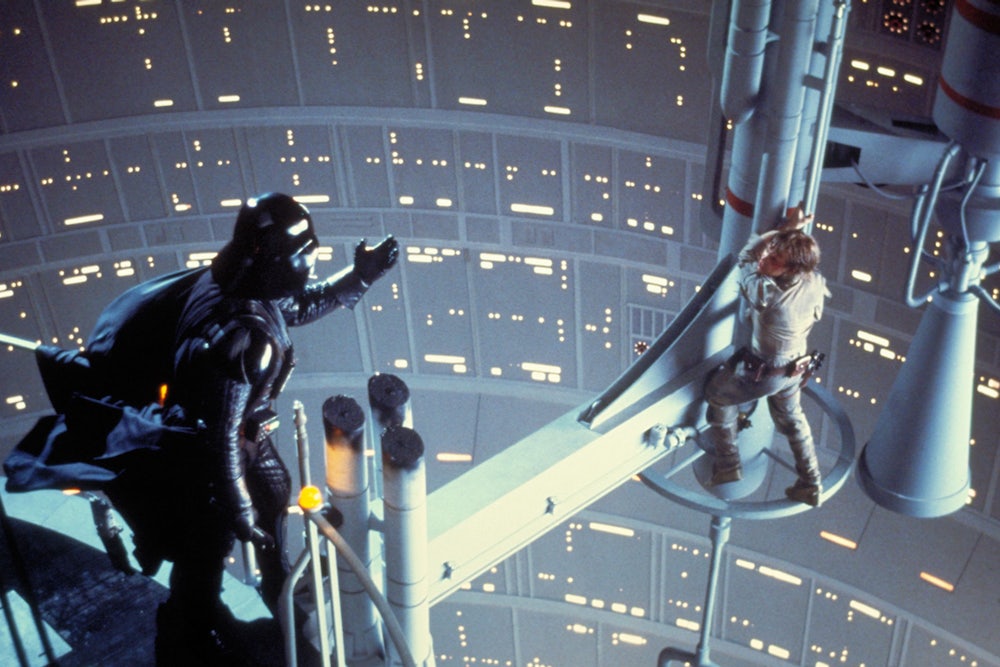For Star Wars fans, the space opera series’ seven films (and counting) are about grand themes such as the battle between an autocratic galactic empire and democratic rebellion, or even more grandly, between the two sides of the Force, good and evil, light and darkness. Yet these lofty narratives are always grounded in the exfoliation of a single family tree, the Skywalker clan. Although the storyline might span the universe, it’s the internal dysfunction of generations of Skywalkers that is the root of the problem—and which pushes the plot forward.
In short, Star Wars is an open-ended cycle of science-fiction films about bad parenting.
If we look at the films in terms of their own internal chronology, the first bad father in Star Wars series is the Force itself. In The Phantom Menace (1999) we learn that Anakin Skywalker, who grows up to become the villainous Darth Vader, had a miraculous birth, with no father. As Anakin’s mother Shmi Skywalker claims, “There was no father. I carried him, I gave birth, I raised him ... I can’t explain what happened.”
Anakin Skywalker’s sex-free conception, calling to mind the miraculous birth of Jesus Christ in traditional Christian teaching, is explained in the series as the work of the Force, which uses the mumbo-jumbo of the midi-chlorians to create a Chosen One who will bring balance to the universe. But if the Force is Anakin’s real father, we have to conclude that the Force is a cosmic deadbeat dad. Both Shmi and Anakin live as slaves; Anankin is taken away from his mother to be raised in a haphazard manner by the Jedi, and he eventual turns evil. If the Force had been more attentive to the woman he impregnated and their progeny, many acts of evil, including genocide, could have been avoided.
Given his terrible childhood, Darth Vader himself becomes a negligent dad. Estranged from his secret wife Padmé Amidala, Vader has no role in the upbringing of the twins she dies giving birth to, Luke Skywalker and Leia Organa. Because they are raised apart, Luke and Leia almost enter into an incestuous relationship. When Vader is finally reunited with Luke, the father cuts off his son’s hand. This is not a happy family.
In the latest Star Wars movie, The Force Awakens, the terrible family dynamics that characterize the Skywalker line continue (spoiler alert). Leia has a son, Ben, with the adventurer Han Solo. Trained to be a jedi by his uncle Luke, Ben goes over to the dark side (becoming Kylo Ren) and wants to follow in the footsteps of his grandfather Darth Vader. The best that can be said for the Skywalkers is that every other generation is decent, but half the time the family becomes leaders of an authoritarian cult.
There is another character in The Force Awakens who might have ties to the Skywalker family: Rey, the mysterious scavenger from the planet Jakku who is strong with the Force. Who is Rey? Is she a lost child of Leia and Han Solo? Or possibly a clone of Luke or Darth Vader? Cloning is a recurring sub-theme in the series, and a fine metaphor for how each generation tries and fails to implant values on the next. We’ll find out the truth about Rey in future movies, but one thing is almost certain: She’s somehow connected to the screwed-up child-rearing practices of the Skywalkers.
